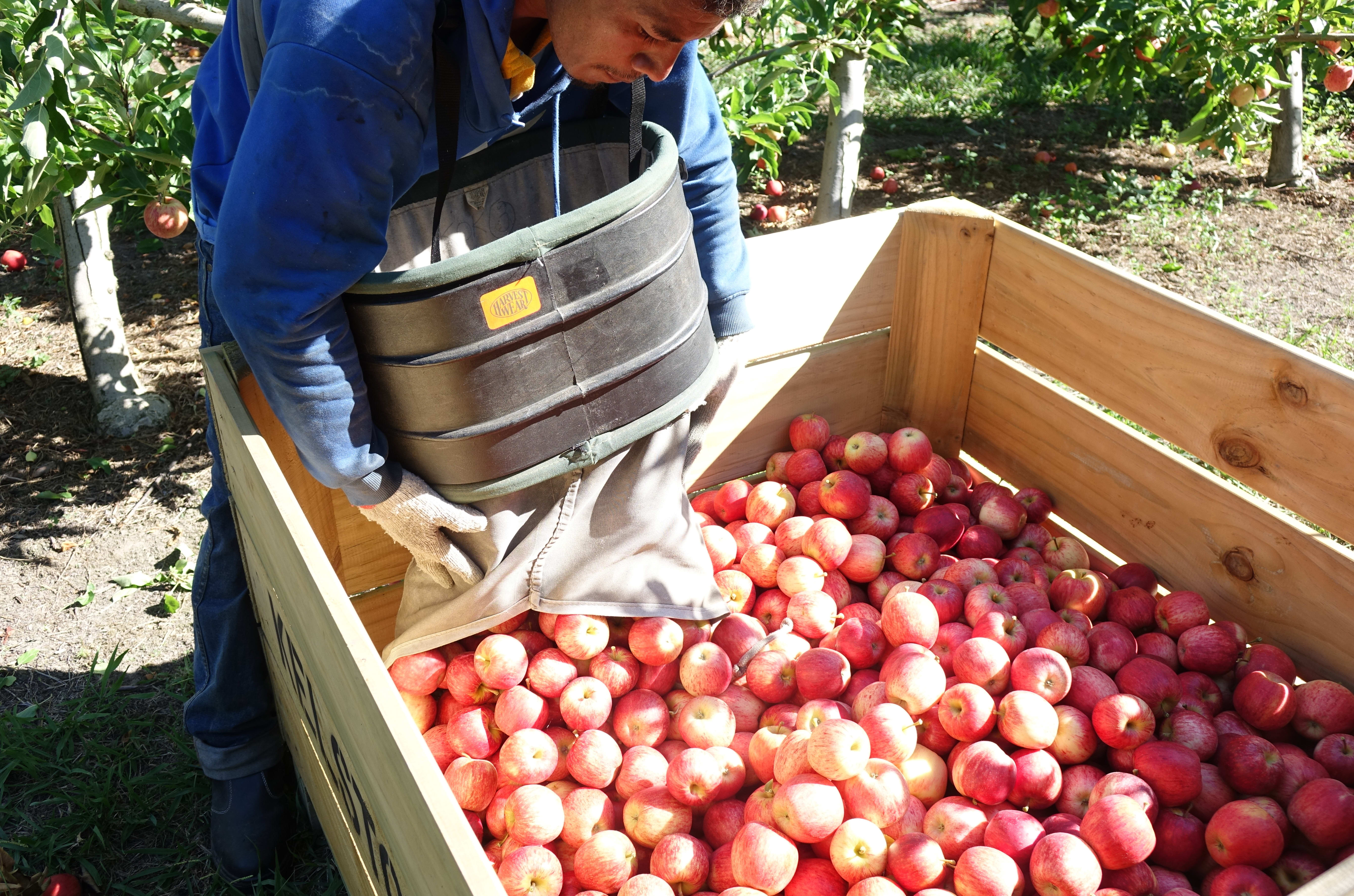The Prime Minister's description of immigrant workers as more reliable than New Zealanders for seasonal work is spot-on, a Hawke's Bay grower says.

A RSE worker offloads apples into a crate in a Hawke's Bay orchard (file) Photo: RNZI / Johnny Blades
A record 69,000 people settled in New Zealand in the year to July, and Labour has pointed to a mismatch between immigration and labour market needs, with workers being brought from overseas to fill jobs while thousands of New Zealand labourers were unemployed.
Immigration Minister Michael Woodhouse said on Sunday that the government would review the planning range for the number of new residents expected to enter the country.
However, he did not expect the policy to change.
Prime Minister John Key told Morning Report immigrants and migrant workers were needed to fill jobs, as some unemployed New Zealanders had drug problems and lacked a good work ethic.
"We bring in people to pick fruit under the RSE (Recognised Seasonal Employer) scheme, and they come from the islands, and they do a fabulous job. And the government has been saying 'well, OK, there are some unemployed people who live in the Hawke's Bay, and so why can't we get them to pick fruit', and we have been trialling a domestic RSE scheme.
"But go and ask the employers, and they will say some of these people won't pass a drug test, some of these people won't turn up for work, some of these people will claim they have health issues later on. So it's not to say there aren't great people who transition from Work and Income to work, they do, but it's equally true that they're also living in the wrong place, or they just can't muster what is required to actually work."
Leon Stallard - a grower, a director at Horticulture New Zealand and a former president of the Hawke's Bay Fruitgrowers' Association - said he agreed with Mr Key's comments.
"I would say everything that John Key said, yes, is true - I would tick every one of those boxes, in essence. I mean, labour is one of the most stressful parts of this business other than the weather."
In the past, growers could rely on local families who would return to work for them each season for years but that was no longer the case, he said.
"I use a theory if I need 30 people, I get 40 people, locals, 'cause on average I only get 30 every day ... They just don't turn up, they couldn't get a ride, I don't know, but their reliability, I mean, you just can't depend on it."
He was unable to comment on drug use as an issue as the industry didn't usually test for it.
"We don't test for drugs - we should, I mean, the theory is if we do test for drugs, we may not have any staff... [although] that's anecdotal."
The RSE scheme had "worked brilliantly", especially in Hawke's Bay, Mr Stallard said.
"We have 10 weeks of harvest. It is difficult for New Zealanders to come from out of town, to find accommodation just for a period of 10 weeks - and then there's the issue of if they bring families, the issue of schooling and finding schooling for them for that time, and making sure they don't fall though the cracks ... Basically, adds pressure if you're running your own business to have to do all that pastoral care too, which comes with the territory and we understand that.
"[Migrant workers] are far more reliable and their productivity seems to be higher. If I have 30 people, I know that the next day I'm going to have 30 people."
In his own orchard, he had used immigrants and migrants including New Zealand-Samoans and backpackers from Japan, Germany, Russia and the Czech Republic, among other places.
"Last year, I might have had out of 30-odd people, I might have had two New Zealanders other than my permanents."
The work wasn't particularly arduous, although workers did need to be reasonably fit, and there were permanent opportunities for those that were interested, he said.
"There's definitely opportunities for permanent staff in the orchards - that's what you see advertised now quite often, is people with skills, that've got some understanding of our industry, who have had some training, and if they haven't, most of the growers are more than happy to assist them into training and help them and encourage them to get into the industry.
"We need quite a few thousand in the next few years - the industry's in a bit of a boom phase at the moment."
Related

